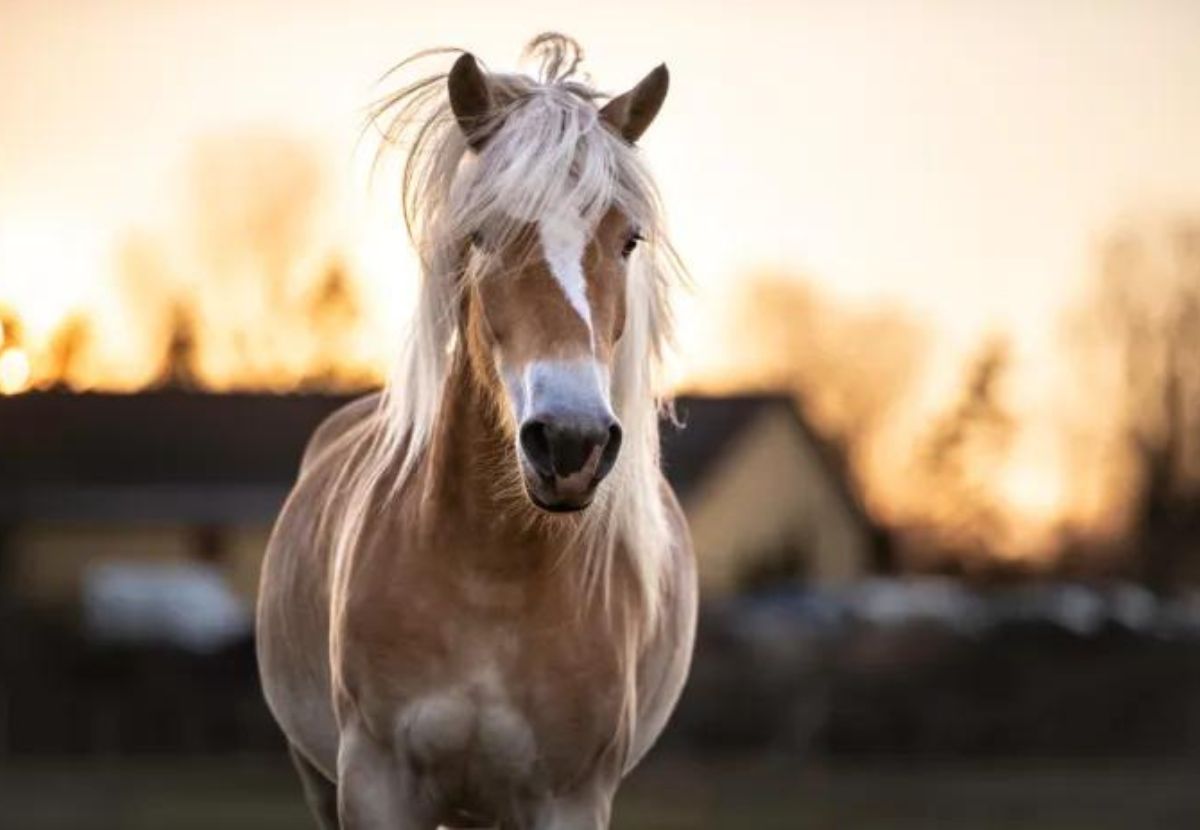Menu

When we train and interact with our horses, our behavior triggers different reactions in the form of neurotransmitters in the horse's brain. Knowledge of these is very important for understanding why horses react as they do. Here you can learn about the four most important neurotransmitters that come into play when horses interact and learn.
Read also: Craniosacral therapy (CST): a gentle yet extremely deep form of therapy
Bettina Hvidemose Riisberg runs the business Center for Animal Therapy, where she, among other things, teaches behavior and physical therapy for horses and dogs. Knowledge about the behavior and learning of animals forms the basis for most of Bettina's work, which also includes physiurgic therapy, rehabilitation, and osteopathy for horses and dogs.
Dopamine is a neurotransmitter - a signaling substance in the brain - and a hormone that is important for learning and movement. Moreover, dopamine is crucial for the horse's motivation and attention. When something succeeds, and one becomes excited about it, this feeling is triggered by the release of dopamine in the brain. Furthermore, we know that dopamine helps stimulate the so-called parasympathetic nervous system. This is the part of the nervous system that makes both horses and humans relax and be calm.
It is considered a sign of something good if the horse smacks its lips, yawns, or licks its mouth. This can be observed, for example, in training contexts or when a therapist works with relaxing the horse's body. Science has shown that these behavioral patterns are a result of dopamine release in the horse's brain and thus an expression of something pleasant.
In other words, dopamine is a substance in the brain that is associated with excitement and calmness. Therefore, it is obviously desirable that our training and interaction with the horse trigger the release of dopamine. If the horse is good at relaxing during training, and you see smacking, yawning, and licking around the mouth along with a relaxed body language, it is a sign that your training methods are working effectively for your horse.
Read also: Is your horse getting enough sleep? Lack of deep sleep can be harmful
The neurotransmitter glutamate strengthens the connection between the horse's various brain cells and nerve cells. Therefore, it is an important substance in maintaining a balanced and well-functioning nervous system, as well as being crucial when the horse needs to learn new things and form new connections in the brain. Any form of learning creates a small physiological change in the brain, and glutamate is necessary for this to happen.
We often say that to become good at something, one must repeat it. This also applies to horses. Repetitions strengthen the neurological pathways that glutamate is responsible for establishing. The more repetitions of successful training, the more the brain changes in the direction we desire. Therefore, it pays to be patient and repeat an exercise many times. In short, too little glutamate results in decreased learning.
Glutamate is also involved in a process that reduces the activity of brain cells and thereby also has an inhibitory effect on anxiety and learned stress. It is important that the horse is continually challenged and developed without it including anxiety, conflicts, stress, and frustration.

Another neurotransmitter and hormone that triggers positive reactions in the horse is serotonin. It helps to stabilize the mood and provides a sense of well-being and contentment. At the same time, this substance helps to reduce appetite, digestion, and sleep. A deficiency of serotonin can lead to inappropriate regulations in the brain and nervous system, thereby causing stress and physiological imbalances.
Serotonin is an important component in a complex balance of hormones, and therefore an excess of serotonin can present challenges. This rarely happens, and you cannot praise your horse so much that it alone creates an imbalance. From a training perspective, it is still advisable and desirable for the horse to release serotonin in the brain – and this is only done with lots of positive interaction, praise, patience, and cooperation.
Read also: Why a forest trip is so good for the cooperation on the track for horse and rider
The neurotransmitter and hormone adrenaline is a fast-acting stress hormone that is activated if one is startled. One notices that the pulse rises and all senses become sharper. This reaction is because adrenaline is meant to prepare the body to perform better in a dangerous situation and ensure survival. This naturally also applies to horses.
Since the horse is a prey animal that, under natural conditions, must be able to flee immediately, it is very prone to releasing adrenaline. If something potentially dangerous happens, it simply must be able to flee immediately.
When the horse tenses up, runs, or resists, it is an expression of an increased release of adrenaline. Adrenaline also interacts with the stress hormone cortisol, which has a more long-term effect and can increase the horse's sensitivity over the long term. If a horse is frequently subjected to something that pressures it, or if it has constant pain, the stress level will permanently increase, making the horse more sensitive.
The big question is, how can you utilize your knowledge of the chemistry in the horse's brain to ensure the creation of a mix of neurotransmitters in the horse that provides the best foundation for well-balanced behavior. This creates a good collaboration with you and contributes to increasing the welfare of the horse. In short, an appropriate balance in the brain is dependent on a well-balanced diet, suitable training, and a healthy physique.
Well-balanced nutrition is an important factor in the formation of neurotransmitters. Certain nutrients, vitamins, and minerals are necessary for the horse to create these substances. For example, if there is a deficiency of the substance tryptophan and/or B-vitamins in the horse's diet, it can make it difficult for the horse to produce serotonin. There are naturally many other connections, and this perspective is complex in itself. Therefore, it is always recommended to seek professional and qualified help for the composition of a feeding plan for each individual horse.
When we train our horses, the inputs we give them are crucial for the reactions that come from the horse. If we pressure it or expose it to something that hurts or is uncomfortable, then the adrenaline level will increase. This can lead to stress and sensitivity and create problematic behavior.
On the other hand, if we are good at releasing our already light pressure when the horse, for example, responds to the reins or the rider's legs, we increase dopamine and serotonin, which leads to a pleasant feeling in the horse.
When we continuously train, collaborate, and give the horse successful experiences with learning, we help to maintain the glutamate balance. A healthy brain chemistry thus also reflects a well-balanced and appropriate horse – and that the training occurs without pain and discomfort, but with lots of successful experiences and affirmations of the desired behavior.
The horse's physical condition also significantly affects the brain's chemistry. Pain, in particular, leads to an increased release of stress hormones. This happens because stress hormones have a pain-relieving effect. For example, there are many stories of people who have been injured in a traffic accident but are so shaken that they do not realize they are in pain until they calm down. This is due to the shock releasing a high concentration of stress hormones, which powerfully numb pain until their level drops again.
As a prey animal, the horse's body is designed to automatically release more stress hormones if it is in pain. This helps it to self-medicate and ensure that it can flee from predators in the wild without problems, even if it is in pain.
If the horse's stress level is permanently elevated – if it is oversensitive, resists, or even seems anxious or nervous – then a physical examination is always recommended. Pain is often the direct cause of such types of behavior.
Read also: Expert: This muscle often causes horses problems with saddle and girth
Sources
Dr. Stephen Peters & Martin Black: Evidence-Based HorseManship
Janet Jones: Horse Brain, Human Brain: The Neuroscience of Horsemanship
Suzanne Rogers: Equine Behaviour in Mind – Applying Behavioural Science